So you visit a company out in town where you want to work, walk into the Human Resources department, and grab an application. Most of them are the same. They usually start out with asking you for your personal information (name, address, phone number etc.). Then, you jot down your current and/or recent jobs. In the section after that one, the employer usually wants you to list any references that you have. It isn’t until you get down to that sometimes lengthy paragraph right before the line where you sign your final signature that you’ll see a sentence that goes something like ‘This employer doesn’t discriminate against race, sex, color, age, national origin…’.
This paragraph’s letters are sometimes in a smaller font size than the ones on the rest of the application’s pages, but it’s one of the most important parts to read when applying for a job. For example, in California, as long as a company has more than 15 employees they have to adhere to Title VII, which is the basic law against employment discrimination of many kinds, including a person’s religion of choice.
Sometimes what a person has faith in is challenged by their employer as the company tries to make the worker alter his or her religious practices. In 2013, the U.S. Equal Employment Opportunity Commission (EOE) received over 3,700 claims for this type of discrimination in the workplace. Settlements that companies like KFC and UPS had to pay were over $40,000, and the cases against other companies just keep growing as employees get more and more tired of their employers not respecting their individual religions.
Senator James Sanders and Assemblyman David Weprin from Queens, New York (who themselves wear religious headgear) just recently passed an Assembly bill that restricts employers from discriminating against a person’s facial hair if it has to do with their religion. One belief that gets a lot of heat from many hiring companies is Rastafarianism. Legendary Reggae Artist Bob Marley made this one popular, particularly because of the fact that he himself wore the long dreadlocks that are associated with it. Rastafarians (Rasta’s for short) believe that their uncut hair and beards are a part of their covenant with Jah (which is their god), going off of the Bible Verse Numbers 6:5,“During the entire period of their Nazarene vow, no razor may be used on their head…they must let their hair grow long.” . Mr. Marvin Duncan (aka Ras Marvin) a New York Resident who was born in Jamaica, was fired from his job at Brookhaven National Laboratory because of his long dreadlocks and beard. Even though he has a Bachelor’s Degree in Mechanical Engineering, a Master’s Degree in Industrial Engineering, and over 20 years of experience as a Nuclear Reactor Operator, they fired him. Ashley Davis from St. Peters Missouri went through something similar for having a dreadlocked hairstyle. Just a few weeks after she started working at Tower Loan they wrote a new policy on hairdos. You see, Ashley was the only worker in her office that wore dreads, but she’d had them in since she was first hired. She strongly feels that they’d only re-written the original policy because of her, and decided that she’d rather them take her job than let them take her individuality.
People should be able to practice their religion freely anywhere that they go, especially to work, a place where they will be spending a lot of their time. If you feel like your employer has discriminated against you because of what you believe in, feel free to contact the experienced Employment Litigation Attorneys at Makarem & Associates at 310.312.0299 or email them at [email protected].


